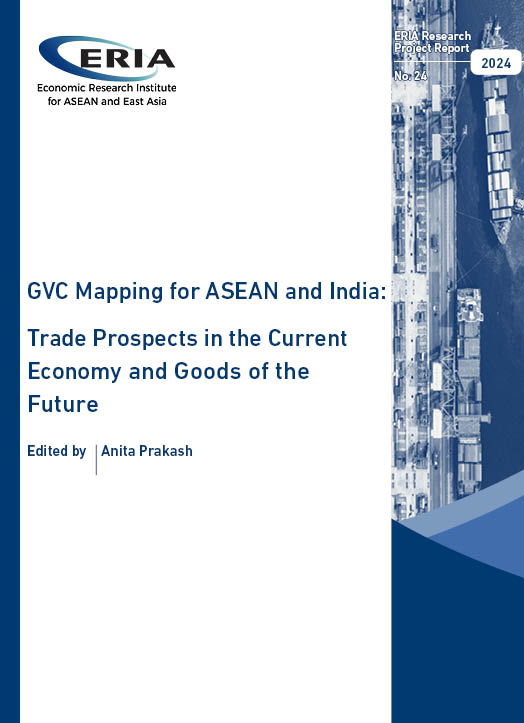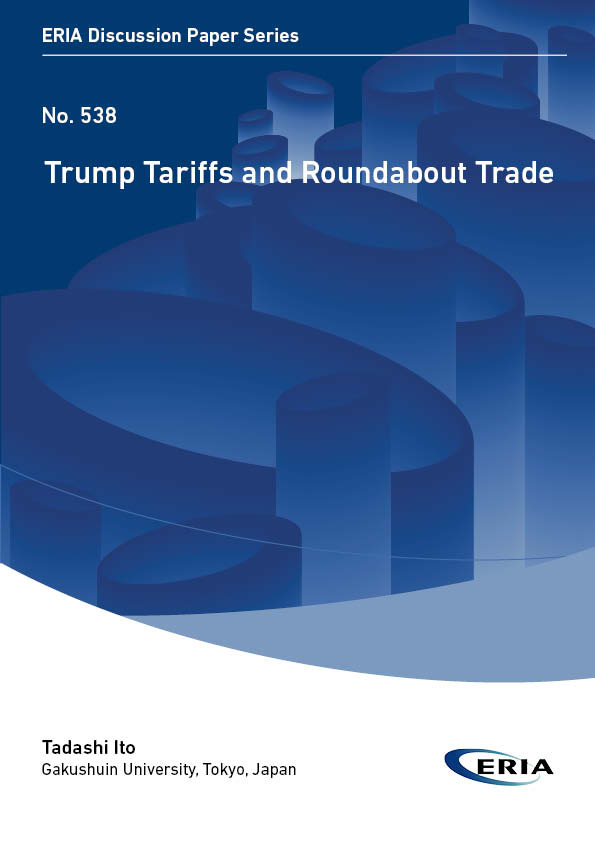Shaping Indonesia’s Economic Resilience: Key Insights from the RPJMD Meeting
Share Article:
Print Article:
Jakarta, 29 November 2024: The Indonesia Development Plan Meeting (Rencana Pembangunan Jangka Menengah Daerah/RPJMD) hosted by BAPPEDA DKI Jakarta focused on addressing the economic challenges and opportunities that lie ahead for Indonesia and the ASEAN region, which were outlined by Dr Lili Yan Ing, Senior Economist at ERIA. With global protectionism on the rise and US–China tensions intensifying, ASEAN is emerging as a critical economic player, projected to become the world’s fourth-largest economy in 2024 with a GDP of $4.13 trillion.
ASEAN’s growing economic influence is evident through its robust trade contributions, accounting for 7.4% of global trade, and its expanding presence in key sectors such as manufacturing, semiconductors, and the digital economy. Semiconductor exports have grown from $165 billion in 2017 to $220 billion in 2022, and the region’s digital economy – valued at $259 billion in 2023 – is projected to reach $1 trillion by 2030.
However, significant challenges persist. Increasing the value added in exports, attracting higher levels of foreign direct investment (FDI), and strengthening participation in global value chains remain priorities. Disparities such as Singapore’s FDI-to-GDP ratio of 34.95% compared to Indonesia’s 1.61% underscore uneven progress. Policy uncertainty and regulatory inefficiencies further hinder economic potential.
For Indonesia, ensuring stability and reform is essential, according to Dr Ing. Ensuring prudent fiscal policies, streamlining regulations, and fostering a favourable business climate are critical. She urged investment in human capital, digital infrastructure, and collaboration between the government and private sectors to boost competitiveness.
Amid ongoing debates about raising VAT to 12% by 2025, Dr Ing cautioned against measures that could slow recovery. Instead, she recommended leveraging regional trade agreements such as the Regional Comprehensive Economic Partnership (RCEP) as a means to unlock growth opportunities.
Prof. Aurik Gustomo from the Institut Teknologi Bandung (ITB) Business School stressed the importance of workforce development to keep Jakarta competitive as an economic hub. He highlighted the need for skills in green technology, renewable energy, global project management, and creative economy competencies. Prof. Gustomo outlined three key policy recommendations:
- Fostering Productivity: Expand digital training programmes for micro, small, and medium enterprises (MSMEs) and promote urban farming as a means to enhance urban productivity.
- Boosting Competitiveness: Simplify business licensing processes through a more integrated Online Single Submission (OSS) system and transform Tanjung Priok Port into an efficient global logistics hub.
- Enhancing Attractiveness: Intensify international promotion of Jakarta’s cultural and historical tourism and offer incentives to investors in eco-friendly tourism initiatives.
Minister of Tourism and Creative Economy, Sandiaga Uno, addressed three strategic challenges for Jakarta:
- Employment and Rising Costs: Develop strategies to create more job opportunities and manage the increasing costs of basic necessities.
- Flood Mitigation and Waste Management: Implement community-based waste management systems following the circular 3R model (Reduce, Reuse, Recycle).
- Affordable Housing: Increase access to housing for low-income groups.
He stressed the importance of public participation and cross-sector collaboration to sustain Jakarta’s contribution to national economic growth and also advocated for workforce upskilling in the creative economy sector, citing the Republic of Korea’s success in surpassing the US in certain creative industries as a model for Jakarta.
Positioning Jakarta – and Indonesia more broadly – as a regional hub within ASEAN is seen as key to attracting higher levels of FDI and driving long-term economic growth. By addressing structural challenges and capitalising on technological and trade advancements, Jakarta can solidify its role as a critical player in the evolving global economy.

.jpeg)
.jpeg)






